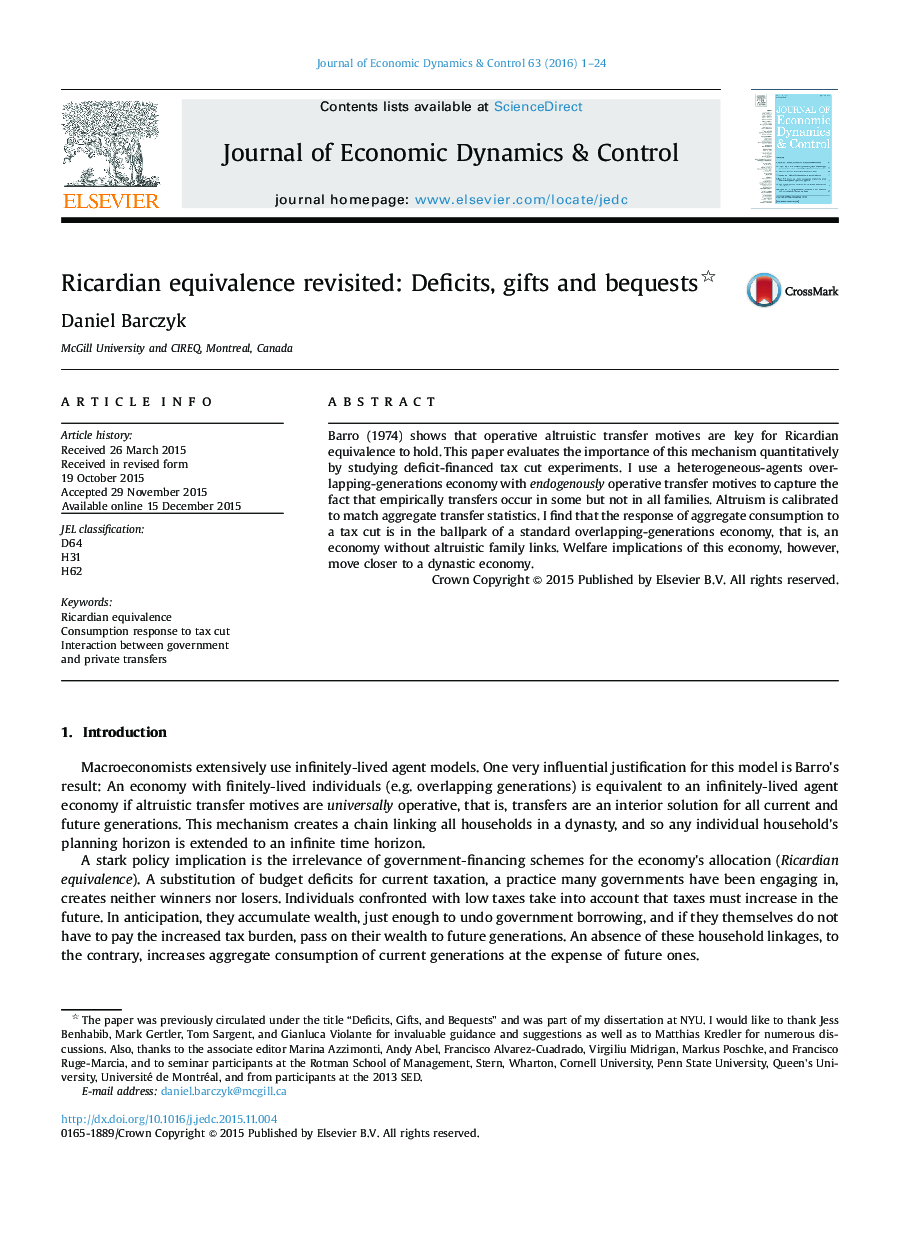| Article ID | Journal | Published Year | Pages | File Type |
|---|---|---|---|---|
| 5098196 | Journal of Economic Dynamics and Control | 2016 | 24 Pages |
Abstract
Barro (1974) shows that operative altruistic transfer motives are key for Ricardian equivalence to hold. This paper evaluates the importance of this mechanism quantitatively by studying deficit-financed tax cut experiments. I use a heterogeneous-agents overlapping-generations economy with endogenously operative transfer motives to capture the fact that empirically transfers occur in some but not in all families. Altruism is calibrated to match aggregate transfer statistics. I find that the response of aggregate consumption to a tax cut is in the ballpark of a standard overlapping-generations economy, that is, an economy without altruistic family links. Welfare implications of this economy, however, move closer to a dynastic economy.
Keywords
Related Topics
Physical Sciences and Engineering
Mathematics
Control and Optimization
Authors
Daniel Barczyk,
